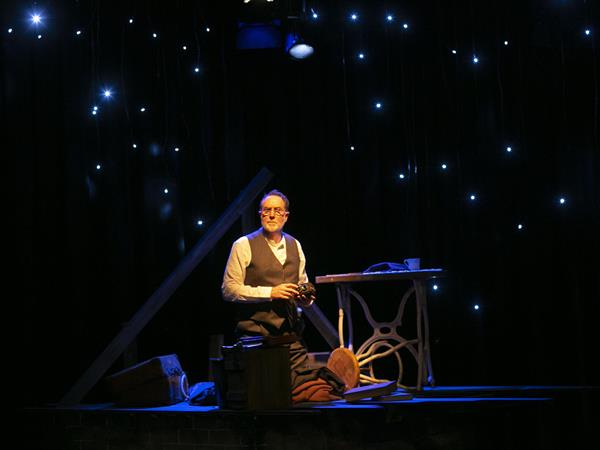Timothy Daly’s The Man in the Attic is based on the incredible true story of a German couple who give refuge to a Jew (Barry French) during World War II. Hidden away in the attic, his skills as a watchmaker serve as payment for the kindness they are providing him. As the war draws to a close, and the fall of the Third Reich throws the non-Jewish population of Germany into economic instability, the Jew’s skills prove too valuable to lose, so the German couple maintain the illusion that it is not yet safe to come out. As lie begets lie, saviour becomes kidnapper and a cycle of violence unfolds whereby none are untainted by the systemic evil in which they are forced to reside in.
Unfolding in a single act over 90 minutes, The Man in the Attic is a slow burn, which is appropriate. In the first half, we feel the monotony of time for the Jew, locked away in a room where the only observable change are the movements of the constellations in the night sky. Disconnected from the world and with only blind faith sustaining him, a kind of Stockholm syndrome develops between him and the Wife (Danielle King), an obviously kind and empathetic woman who is both friend and captor to the Jew, and simultaneously oppressed subordinate/co-conspirator to her domineering husband. His gratitude provokes her guilt; she compensates for her guilt with more kindness, which prompts from him more gratitude. It would be funny if it weren’t all so sick, but this was the reality that everyone had to endure in this time. King has the most challenging and complex role to play, and she does that admirably. French as the Jew is wonderfully sympathetic, but does the power of his likability nullify the complexity of his character, in glossing over his own willingness to submit to his capture? If likability is a flaw, it’s ultimately not a bad flaw to have.
Read the review by Ann Foo on ArtsHub.

